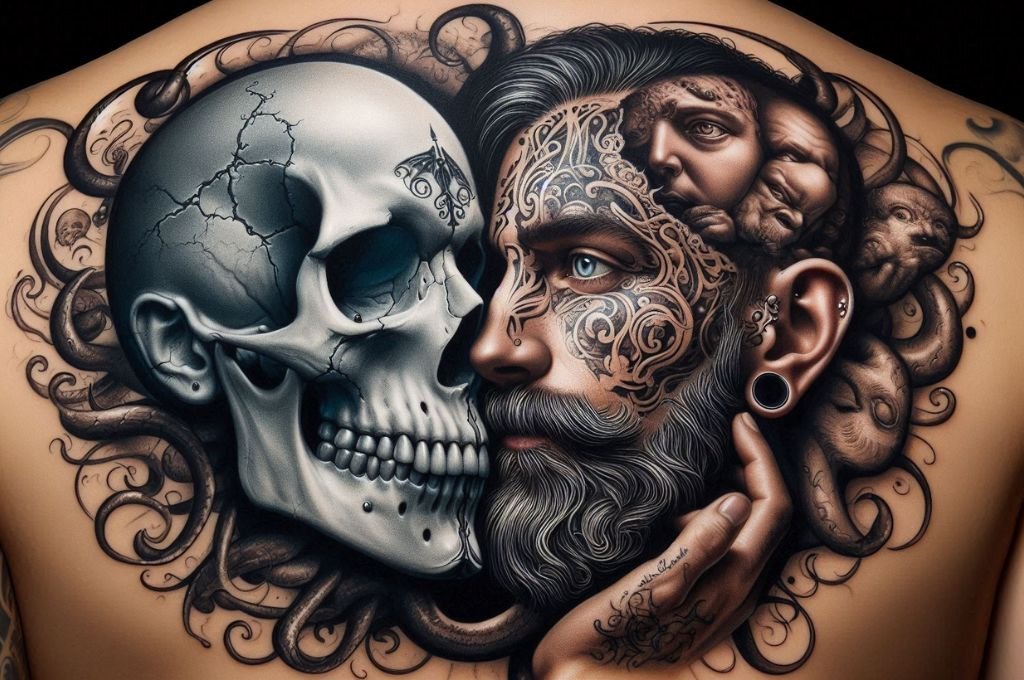Body modifications like tattoos and piercings have become expressions of individuality, culture, and personal identity. Understanding the psychological factors behind these choices reveals deeper motivations that go beyond aesthetics. For many, these choices are about control over one’s appearance and asserting a unique identity. Additionally, body modifications can act as symbols of personal milestones or emotional healing, transforming the body into a canvas for storytelling and self-discovery. Ultimately, tattoos and piercings help individuals carve out spaces where they feel empowered and authentically themselves.
Personal Expression and Identity
For many, tattoos and piercings offer a way to showcase their identity. People choose designs or piercings that symbolize pivotal life moments, relationships, or beliefs. These body modifications often represent a desire for uniqueness, allowing individuals to visibly differentiate themselves from others.
Tattoo choices often involve symbolism or emotional attachment. For instance, memorial tattoos honor loved ones, while abstract designs reflect personal growth or transformation. Piercings, on the other hand, can range from subtle adornments to bold statements, each carrying its own set of meanings. Whether subtle or extravagant, piercings and tattoos allow for externalizing inner thoughts or emotions.
This personal expression is especially prevalent among younger generations who see body art as an extension of their identities. Unlike clothing or hairstyles, body art offers a permanent way to communicate one’s uniqueness.
Emotional Release and Coping
Beyond aesthetics, tattoos and piercings can serve as coping mechanisms. The process of getting a tattoo or piercing can symbolize reclaiming control over one’s body, particularly for those who have undergone trauma. The physical sensation associated with the procedure can provide catharsis, helping individuals process emotional pain.
Additionally, certain designs or piercing placements may offer a form of healing. Some people report that body modifications help them feel more connected to themselves, providing comfort during difficult times. This psychological boost often comes from the act of choosing and committing to a tattoo or piercing, symbolizing personal resilience.
Social Belonging and Group Identity
Tattoos and piercings can also signify belonging to a particular group or subculture. From punk and goth communities to bikers and artists, body modifications often symbolize a shared set of values or beliefs. In these contexts, visiting a piercing shop or tattoo studio becomes more than just a personal act—it’s a ritual of group affiliation.
People who are part of certain communities may feel more empowered or validated when they align their body art with the norms of their group. This sense of social connection helps strengthen bonds within the community, reinforcing a sense of belonging.
Even outside of subcultures, tattoos and piercings are increasingly accepted in mainstream society. This shift in perception allows individuals to express themselves more freely without fear of judgment, further encouraging the popularity of body modifications.
Empowerment and Self-Confidence
Getting a tattoo or piercing can also boost confidence. Many people report feeling more empowered after getting body art, as it reflects their ability to make independent decisions about their bodies. The experience of visiting a piercing shop, for instance, can be liberating, as it offers individuals the chance to alter their appearance in a way that feels true to themselves.
Moreover, the visibility of tattoos and piercings can enhance self-esteem by providing constant reminders of personal achievements or values. These visible markers act as daily affirmations of strength, resilience, or individuality, helping individuals feel more confident in their identities.
The Influence of Popular Culture
Pop culture plays a significant role in the growing popularity of tattoos and piercings. Celebrities and influencers have made body modifications more socially acceptable, encouraging their followers to adopt similar styles. Tattoos and piercings are often seen as fashionable, and many people are influenced by trends when deciding on their next body art project.
For some, getting a piercing or tattoo associated with a favorite musician or actor serves as a way to feel connected to their idols. In this sense, body modifications can serve as both personal and public displays of admiration.
However, this influence can also pressure individuals to conform to trends that may not necessarily align with their personal values. Some may regret getting a tattoo or piercing that was trendy at the time but no longer reflects who they are. This psychological push-and-pull between individuality and conformity plays a key role in the decision-making process.
Conclusion
The psychology behind tattoo and piercing choices is complex and multifaceted, encompassing personal expression, emotional release, social belonging, and empowerment. Whether motivated by a desire for self-expression or healing, body modifications carry deep emotional significance. As tattoos and piercings become increasingly mainstream, they continue to serve as powerful symbols of individuality and personal transformation. Understanding these motivations helps piercings and tattoo artists connect with their clients on a deeper level, ensuring that each design or piercing resonates with the individual’s personal journey.







